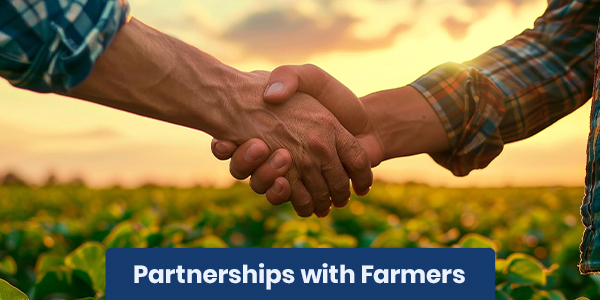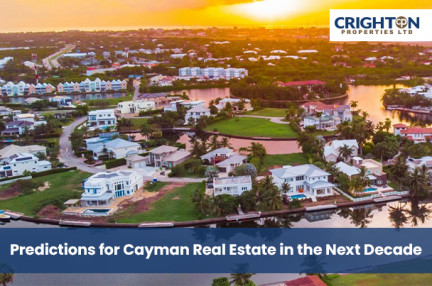
Ways to Add Value to Your Cayman Property Through Renovation
Discover smart renovation ideas that increase your Cayman property value, attract buyers, and maximize ROI in today’s competitive real estate market.
Crighton Properties | September 26, 2025
In the Cayman Islands, property ownership is a privilege with enormous possibilities. Owners of real estate frequently seek methods to maximize their investment's yield while minimizing daily engagement, going beyond merely holding land as an increasing asset. This problem can be solved with passive income. It transforms real estate from a static possession into a dynamic, revenue-producing asset with careful planning.
The Cayman Islands' unique combination of geography, culture, and laws sets the strategies for making passive income there apart from those in other markets. Beyond broad solutions, this guide explores practical and sustainable ideas created especially for Cayman Islands property owners, focusing on tactics that are relevant and feasible in the local environment.
Making more money isn't the primary goal of passive income. It is important for land or building owners to make sure that their properties contribute to their finances even if they are not being developed immediately. In the Cayman Islands, where there is a constant high demand for land and a shortage of it, passive income generation enables owners to make the most of their holdings while they wait for the right moment to develop, sell, or expand on to a piece of property.
More importantly, by producing revenue independent of employment or active firms in general, passive income spreads financial risk.
Some look at passive income as protection against uncertainty; others as a stepping stone to bigger projects. Either way, it makes owning property a more versatile and profitable investment strategy.
Agriculture has been steadily gaining ground in the Cayman Islands as part of a broader move toward sustainability and local food security. Property owners can participate in this shift in several ways.
Local herbs, tropical fruits, and organic vegetables are being sourced by an increasing number of hotels and restaurants. These crops can be grown by landowners with fertile plots and sold directly to companies. Although large-scale farming is not necessary for this method, consistency and quality are advantages.
Establishing a CSA program, in which households pay in advance for weekly or monthly vegetable deliveries, is an additional choice. Communities gain from consistent access to fresh food, while property owners profit from dependable financial flow.

Not all landowners possess the necessary time or skills to oversee agriculture. In these situations, establishing alliances with seasoned farmers enables the land to be utilized effectively without direct participation. By generating revenue through leasing agreements or profit-sharing, owners may maintain the property's value and activity.
Property owners may help a developing industry and transform land into a reliable source of income by promoting local food production.
Tourism is one of the strongest pillars of Cayman’s economy. Instead of focusing on accommodations, property owners can tap into this sector by creating experiences rooted in land and culture.
One option is to designate areas for birdwatching, botanical gardens, or guided tours that appeal to locals and visitors alike. These efforts need careful preparation and collaboration with environmental experts, but they can ultimately produce reliable outcomes. Cultural programming is another choice. Tours, exhibits, or educational activities on Caymanian heritage may be held on properties of historical or cultural value.
The wellness tourism industry is another new one. As health and well- being become more popular across the world, property owners may collaborate with gym instructors, nutritionists, or massage therapists to provide retreats on scenic parcels of land. Through these efforts, Cayman's natural beauty is combined with services that visitors actively seek out.
To illustrate the options clearly, consider this comparison:
Opportunity | Primary Audience | Investment Level | Potential Returns |
| Nature Trails & Gardens | Eco-tourists, schools | Moderate | Long-term steady |
| Cultural Heritage Sites | Tourists, locals, schools | Low to Moderate | Seasonal spikes |
| Wellness Retreats | International visitors | Higher | Premium pricing |
This variety shows that eco-tourism can be tailored to the property owner’s goals, whether they prefer modest investment or larger, long-term projects.
As the Cayman Islands embraces renewable energy, property owners are in a strong position to participate. Since very few houses currently use solar panels, early adopters stand to benefit the most. Installing panels on large rooftops or unused land is one of the most accessible options, and in many cases, excess energy can be sold back to the grid under structured programs, creating a direct income stream while also reducing utility costs.
Battery storage and solar water heating are also worth considering. These options increase the efficiency of solar installations and make properties less dependent on the grid. Beyond financial returns, renewable energy projects enhance property value by aligning with long-term sustainability goals. They also reduce utility costs for the owner, which is a form of indirect income.
This sector demonstrates how property can play a role in broader environmental objectives while still producing tangible financial benefits.
Not every revenue strategy on Cayman Islands real estate needs extensive development. Undeveloped land can be used in ways that yield rewards with very little outlay of funds.
Licensing property for billboards or signs is a straightforward example, particularly if the area is next to a busy route. Property owners may profit from prime locations without making significant commitments, while businesses are constantly searching for high-visibility advertising options.
Another choice is to host temporary or seasonal events on the site, such as local fairs, outdoor exhibitions, or neighborhood markets. These events provide revenue while leaving space for future goals. Furthermore, certain businesses might need to store equipment, boats, or building supplies outside. When a landowner works with these companies, they keep the property active and provide steady income.
Offering land for study or educational use is another innovative tactic. Outdoor areas are frequently needed for programs at universities and schools, ranging from ecological studies to skill development. Honoraria or structured payments can be paid to landowners who offer their property for these uses under legal agreements.
Community organisations may also seek land for workshops, outdoor classrooms, or cultural training programs. These arrangements create goodwill in addition to financial returns, positioning the property owner as a contributor to community growth.
Preparing Cayman land for future development might occasionally be the best passive income approach. When sold or transferred, land that has been properly surveyed, recorded, and zoning-compliant is worth more. Enhancements like gaining preliminary permissions or establishing utility access can greatly boost resale potential even in the absence of rapid construction.
Engaging with professionals in Cayman Islands real estate helps ensure that these preparations match current and future demand. Strategic patience, combined with readiness, is itself a form of income generation because it increases the value of the property without requiring active use.
Passive income streams in the Cayman Islands stretch far beyond the customary emphasis on renting. Pursuing agriculture, ecotourism, renewable energy sources, conservation, and community partnerships enable landowners to develop land as a renewable asset that produces income streams until larger projects come about.
The best approaches when you purchase properties for sale in the Cayman Islands are those that match the owner’s resources, with the nature of land itself, and with Cayman’s larger aspirations. Clever planning and professional assistance enable landowners to generate income streams which fortify personal wealth as well as the islands’ longer-term prosperity.
Yes, depending on the scale and type of cultivation. The Department of Agriculture and the Department of Planning can guide you on permits and regulations specific to your project.
Renewable systems are permitted on most properties, though they need to be approved. Solar is well accepted, but wind and hybrid systems can be location and environmental study dependent.
The easiest solution will be determined by your type of land. On raw land, signage or small farm joint ventures could be fastest. On developed land, renewable energy or community projects tend to need little hands-on management but provide consistent returns.

Discover smart renovation ideas that increase your Cayman property value, attract buyers, and maximize ROI in today’s competitive real estate market.

Looking for a pet-friendly home in Cayman? Learn key factors pet owners should consider, from amenities to community rules and more.

Explore expert predictions for the Cayman Islands real estate market over the next decade — trends, growth, and investment opportunities.